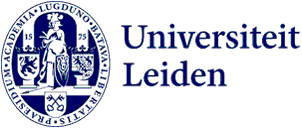Awarded research project Next Generation ImmunoDermatology: Towards Biomarker-driven Dermatology practice in the Netherlands
The Dutch Research Council (NWO) has, within the framework of Research along Routes by Consortia (NWA-ORC), awarded the research project Next Generation Immuno-Dermatology (NGID) with a prestigious grant of 11.7 MEuro. NGID is a nationwide, large-scale project to unravel novel biomarkers for six different skin diseases. These biomarkers will drive a high-tech, patient-centric approach in clinical practice. Prof. Robert Rissmann, (Leiden Academic Centre for Drug Research, Leiden University / CHDR) is the coordinator of the NGID Project.

In the Netherlands over 2.5 million patients suffer from chronic inflammatory skin diseases. Although not life-threatening, the personal impact and socio-economic costs of these chronic conditions are very high. The biggest problem is that many treatments are not suited for every patient and often do not work.
NGID will tackle this problem and will develop the right care for the right patient at the right time. Within this 6-year project six inflammatory skin diseases will be investigated in ultra-high detail. For this approach, a unique, international consortium consisting of scientific institutes, universities, high-tech companies, hospitals, patient associations and (bio)pharmaceutical industry has been setup. Dermatologists from all Dutch University Medical Centers will be connected to biologists, bio-informaticians, statisticians, behavioural scientists, communication researchers and of course to the patient. By means of a new data analysis and integration approach, NGID will make patient-specific fingerprints that will guide the best care for the individual patient in the future.
Patient statement. Ilse van Ee (Dutch psoriasis patient association): “For many patients it is a long quest to find an effective and good treatment. The NGID should enable a more rational and targeted treatment of skin diseases. I expect a big impact on Dutch patient care in dermatology”.
Prof. Robert Rissmann (Leiden Academic Centre for Drug Research, Leiden University) will be fulfilling the coordinating role for this project. The following investigators will be participating: Prof. Hankemeier (LACDR – metabolomics), Prof. Bouwstra (LACDR - lipidmomics), Prof. Evers and Dr van Beugen (FSW – behavioural and psychological markers), Prof. Lelieveldt (LUMC and TU Delft, data visualisation and data integration), Prof. Koning (LUMC - immunology and spatial omics), prof. Huizinga (LUMC – rheumatology), Prof. Vermeer (LUMC – clinical dermatology) and Dr. El Ghalbzouri (LUMC – translational dermatology), Dr. Lindenburg and Dr. Kaal (Hogeschool Leiden - metabolomics) and Dr. Exadaktylos (CHDR – remote trials).
Project Facts
Project acronym: NGID
Project title: Next Generation ImmunoDermatology
Start date: 1 Sep 2022
Duration: 72 months
Budget: € 11.7 M
Coordination: Leiden University, Prof. dr. R. Rissmann
Project Management: Maastricht University
Consortium:
Almirall (NL/ Spanje)
Amsterdam Universitair Medische Centra
BIOMAP consortium, EU IMI2
CELLnTEC (Zwitserland),
Centre for Human Drug Research
Clinical Microbiomics (Denemarken)
Erasmus MC
FibroTx (Estland)
Hogeschool Arnhem Nijmegen - University of Applied Sciences
Hogeschool Leiden
Huid Nederland
Janssen-Cilag B.V.
Leids Universitair Medisch Centrum
Maastricht University
Maastricht University Medical Center
Maruho (Japan)
Nederlandse Vereniging voor Dermatologie en Venereologie
Nederlandse Vereniging voor Experimentele Dermatologie
Perimed AB (Zweden)
Proefdiervrij
Psoriasispatiënten Nederland
Radboud Universitair Medisch Centrum
River Diagnostics
Sanquin
Scibase (Zweden)
Skin Research Institute of Singapore, Innovative Medicines Initiative
Stichting Huidlymfoom,
Technische Universiteit Delft
Universitair Medisch Centrum Groningen
Universitair Medisch Centrum Utrecht
Universiteit van Amsterdam
Universiteit Leiden
Vereniging voor Mensen met Constitutioneel Eczeem
Contact for press
Prof. Robert Rissmann, Leiden University
Coordinator NGID Project
Leiden Academic Centre for Drug Research
